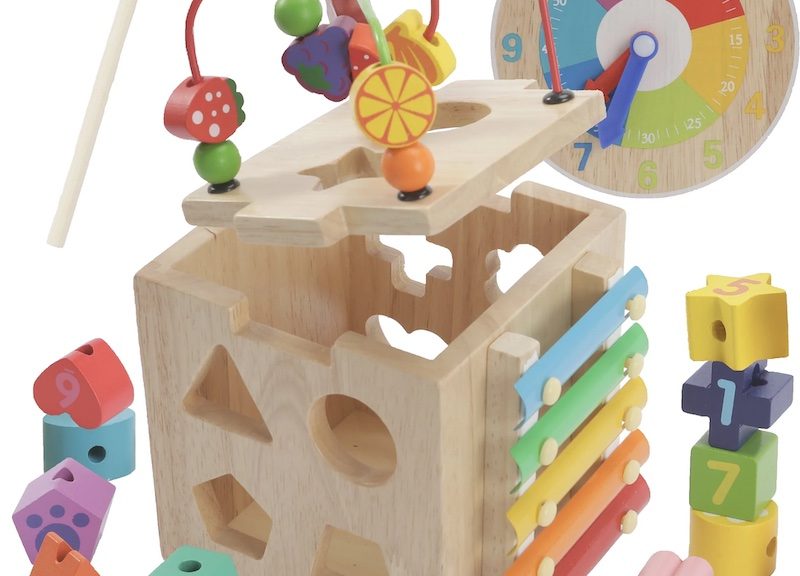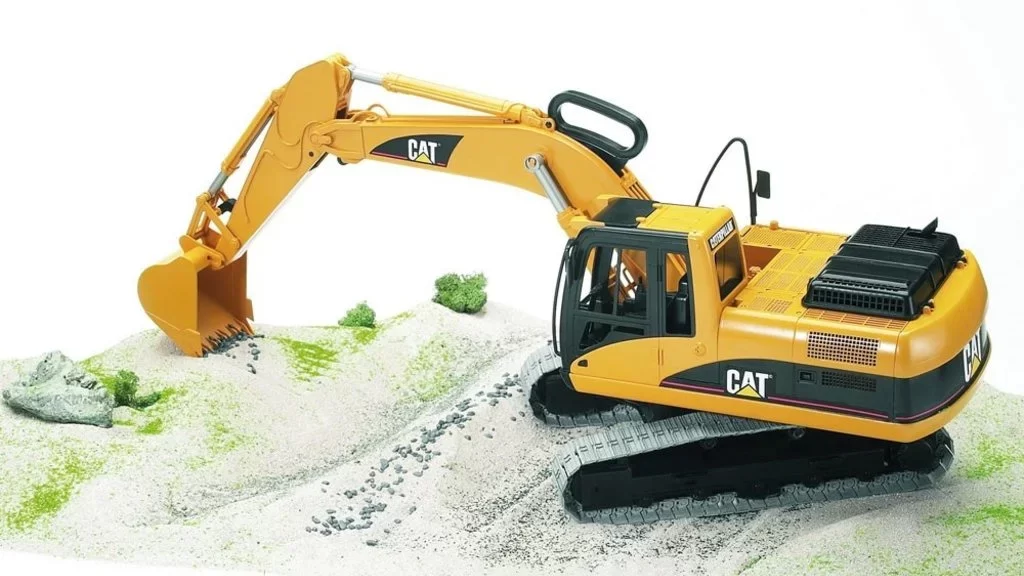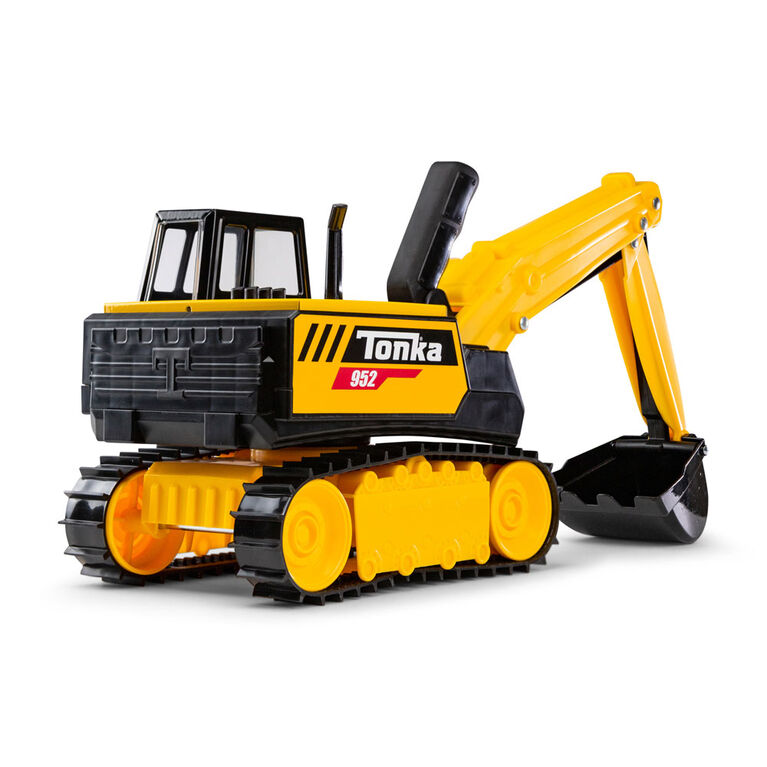Introduction to Montessori Toys for Toddlers
The Montessori method shapes young minds through hands-on play. Montessori toys for toddlers are tools that foster growth and learning. They are simple, durable, and crafted to teach without overwhelming. These toddler Montessori toys are based on real-world experiences. They boost a toddler’s curiosity, helping them explore and learn at their own pace.
Maria Montessori’s approach focuses on key development stages. It encourages toddlers to discover through self-led activities. Montessori toys are made from natural materials like wood, metal, and cotton. They are safe and sensory-rich. These toys invite toddlers to touch, manipulate, and experiment.
Toddler Montessori toys follow strict criteria to ensure they benefit your child’s growth. They are free from batteries and excessive noise. They push toddlers to solve problems, be creative, and practice life skills. Montessori toys are not just playthings; they are building blocks for a toddler’s future.
The Role of Montessori Toys in Sensory and Motor Development
Montessori toys play a crucial role in enhancing sensory and motor skills in toddlers. These toys are designed to engage different senses, offering tactile, visual, and sometimes auditory feedback that is essential for sensory development. For instance, varied textures of Montessori toys like smooth wooden blocks and soft cotton fabrics stimulate touch.
Motor development is equally supported by these toys. Activities like stacking, sorting, and using puzzles require precise movements. This enhances fine motor skills, critical for writing and other detailed activities later in life. Gross motor skills are not left out, as larger toys like balance beams and climbing frames encourage whole-body movement.
Montessori toys are carefully crafted to ensure they aid in physical development while being safe and enjoyable. This dual focus helps toddlers develop essential life skills naturally through play. By engaging in activities with Montessori toys, toddlers not only learn about their environment but also build physical and cognitive abilities foundational for future learning.
Selection Criteria for Montessori Toys
Choosing the right toys for your toddler is important. Montessori toys must meet certain criteria to truly be beneficial for child development. When selecting these toys, several factors should guide your decision:
- Material Quality: Look for toys made of natural materials like wood, metal, and cotton. These are safe and offer different sensory experiences.
- Functionality and Purpose: Each toy should have a clear purpose. It should enhance learning or skill development.
- Simplicity: Montessori toys are simple in design. This helps toddlers focus without getting overwhelmed.
- Developmentally Appropriate: Toys need to suit the child’s age and abilities. Pick toys that match your toddler’s stage of development.
- Safety: Ensure the toys are non-toxic and have no small parts that could be a choking hazard.
- Self-directed Learning: The toy should allow for independent play. It should encourage toddlers to explore and learn on their own.
Choose toys that fit these criteria to support your toddler’s Montessori learning experience.
The Best Montessori Toys for Various Stages of Toddlerhood
Choosing the right toys can be a joy. It helps toddlers learn and grow. Each age needs different Montessori toys. These toys match their developing skills. Let’s look at the best toys for each toddler stage.
0-6 Months Montessori Toys
Babies start to touch, see, and hear. Black and white mobiles are great. They grab baby’s gaze. Soft rattles help with grip and sound tracking. Cloth books with simple pictures invite looking and touching. They boost baby’s brain growth.
6-12 Months Montessori Toys
Babies now reach, grasp, and explore more. Sturdy wooden toys are good for this age. They can chew on them and learn cause and effect. Simple puzzles with knobs help with fine motor skills. Soft balls encourage crawling and coordination.
12-18 Months Montessori Toys
Toddlers begin walking and talking. Push toys help with balance and steps. Shape sorters teach matching and problem solving. Books with basic words boost language skills. Building blocks spark creativity and fine motor development.
18+ Months Montessori Toys
Older toddlers love to pretend and do ‘grown-up’ tasks. Play kitchens and tools teach life skills. Dolls and puppets encourage empathy and storytelling. Simple musical instruments expose them to rhythm and sound. All these toys help toddlers become confident learners.

Enhancing Toddlers’ Practical Skills with Montessori Toys
Montessori toys do more than just entertain toddlers. They also build essential practical skills. These toys mimic everyday tasks, allowing toddlers to learn by doing. Here are key ways Montessori toys enhance practical skills:
- Daily Living Skills: Toys like mini brooms, mops, and cooking sets mimic adult tools. Toddlers love imitating grown-up activities, which teaches them self-care and responsibility.
- Problem Solving: Toys that require sorting, assembling, or repairing encourage toddlers to think critically and solve problems.
- Coordination and Motor Skills: Many Montessori toys need gripping, stacking, or threading. These improve hand-eye coordination and fine motor skills.
- Independence: Montessori philosophy stresses on independent play. Toys designed for self-exploration help toddlers become self-reliant learners.
Choosing Montessori toys that mirror real life activities not only makes learning fun but also ingrains vital life skills in young minds.
Encouraging Creativity and Imagination through Montessori Play
Montessori toys do more than aid physical development; they spur creative and imaginative growth. Here’s how they empower your toddler’s creative faculties:
- Self-Expression Through Play: These toys let toddlers express their feelings and ideas. This expression is key for emotional and mental development.
- Open-Ended Toys: Montessori encourages use of toys that have no set outcome. Toys like building blocks allow toddlers to build whatever they imagine.
- Role Playing: Dolls and play kitchens let toddlers act out real-life roles. This fosters deeper understanding and creativity.
- Art and Music: Simple instruments and art supplies can help unleash a toddler’s artistic side. These activities boost both creativity and motor skills.
By choosing toys that encourage these aspects of play, you prompt your toddler to think creatively. This prepares them for problem-solving and innovation in later life.
Creating a Montessori-friendly Play Space at Home
To make a Montessori play space, think simple and safe. Use natural materials like wood and cotton for toys. Ensure the space is free of clutter. This helps toddlers focus and explore without distractions.
Place toys on low shelves within easy reach. This builds independence as toddlers choose what to play with. Include a small table and chair for activities like drawing and building.
Rotate toys often to keep interest high. This also avoids overwhelming your child with too many choices. Keep the play space well-lit and warm. Natural light boosts mood and learning.
Finally, make the area safe for your toddler. Use soft mats on the floor and secure shelves to the wall. A Montessori space should invite learning, creativity, and growth in a comforting way.
Conclusion: The Lasting Impact of Montessori Play on Toddler Development
Montessori toys do more than keep toddlers busy. They have a lasting impact on their growth. These toys shape vital skills in children from a young age. They learn problem-solving, creativity, and independence. As they play, toddlers build their future learning and thinking skills.
With Montessori toys, toddlers explore and learn at their own speed. They touch and feel, stacking and sorting all by themselves. They grow in confidence and become eager learners. These toys support their natural curiosity.
Parents and caregivers see the benefits as toddlers grow older. Children who play with Montessori toys often have strong motor skills. They can express themselves well and show deep creativity. They tend to be more self-reliant and better at solving problems.
A Montessori environment sets toddlers up for success. It gives them tools for school and for life. The skills they develop through Montessori play stick with them. They help shape well-rounded, capable individuals. Montessori toys are an investment in a child’s future that pays off for years to come.






